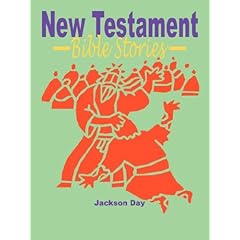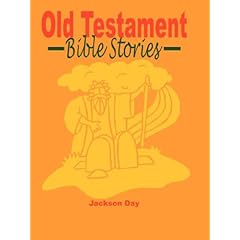
When you talk about "Bible Story Telling" as a means of evangelizing and discipling people, initially the discussion turns to "illiterate" people in Third World nations who either have no written language and, therefore, no Bible or people in the same part of the world who were never taught to read. Reaching these cultures is most quickly accomplished by training evangelists and teachers in the art of Bible Story Telling in order to share the Good News of Jesus Christ. It's not uncommon for these evangelists to master up to 125 Bible stories from Genesis to Revelation. In essence they "carry" their Bible internally and, as participants in oral cultures, often master the stories word for word in amazing detail. And that's a good thing... many would be beaten if seen carrying a Bible or religious literature. For them Bible Story Telling is an inexpensive and often "viral" way of communicating the message of God's Saving Truth for the World. Even Wycliffe Bible Translators is exploring the use of this method to convey the Gospel while their translators perform the laborious task of Bible translation.

Sadly, many assume Bible Story Telling is simply a method that's only applicable in the Third World. That misunderstanding is a dangerous one for a variety of reasons:
1. It assumes our own listeners are "literate" and enjoy learning by reading. Increasingly that's just not true.
2. It assumes that we as communicators of God's Word are interesting enough to hold our hearer's attention in the television, computer and video dominated world through traditional "preaching". That's not always so.
3. It assumes that the people God has tasked us with reaching in the West today prefer to learn through a lecture known as a "sermon"... increasingly they don't even recognize a minister's "right" (as they see it) to deliver an uninterrupted, unquestionable "message" in an evangelistic situation. We need to be more "subversive".
4. It assumes that the people we address already have a firm grasp of the basic facts of the Gospel and only need to make a "decision". In reality, even many in "church" are woefully ignorant of the "facts" of the Gospel and the message of the Bible.
In today's "post modern" age, learners are increasing "post literate" if not "illiterate". Rich or poor, many are resistant to the message of Christianity (as they perceive it). In addition, they often prefer to learn in a setting that includes dialog and discussion that are ideally suited for Bible Story Telling but which may not accommodate themselves to traditional "preaching" or "Bible Studies" since they are not, at present, ready to commit to something as threatening as a "study". "Listening to Bible Stories" is seen as non-threatening however.

Most Bible Story Telling resources are, unfortunately, descriptions of the use of Bible Story Telling in Third World settings. For pastors and teachers in the West, Jackson Day's 3 volume collection of Bible Story Telling resources fills a unique void. To be sure there are other resources on "Story telling" but, to my knowledge, only Jackson Day's work speaks to preachers and teachers so simply, directly, and thoroughly. Other works seem to emphasize the finer points of the story telling art, go to great lengths about story telling in general. They do not have Rev. Day's ability to help pastors and teachers apply Bible Story Telling to their present ministry of the Word and the tasks of evangelism and discipleship.
Rev. Day, a graduate of Southwestern Baptist Theological Seminary and veteran missionary in Brazil, approaches Bible Story Telling from the standpoint of the teacher of God's Word for whom story telling is the appropriate method. Others seem to approach things from the perspective of a story teller who, perchance, has found some strange and wonderful stories to tell in this "thing called the Bible". As a servant of the Biblical Text, Day's books demonstrate a profound understanding of practical homiletics and Bible teaching method. As such, these works are an excellent refresher in the art of expository preaching and teaching even if one never were to tell a "bible story" at all! Frankly many congregations will find sermons based on Bible Stories as a "breath of fresh air" especially if the preacher follows Rev. Day's prescriptions on the proper use of explanation, illustration, and application in the preaching and teaching cycles. By following Rev. Day's steps in the creation and use of "Life Lessons" derived from the text of scripture instead of more lifeless "sermon points", preachers and teachers will suddenly find their sermons speaking more directly to their hearers. Perhaps, like Jesus, our audiences will learn to listen to us "gladly" as a result?
In these three works this master instructor
1. Summarizes the major stories of the Bible
2. Lists their major points
3. Suggests numerous "Life Lessons" from each story
4. Makes clear proper homiletic method for using Bible Stories as preaching texts
5. Makes clear proper educational method for using Bible Stories as texts for a teaching situation
6. Discusses the use of Bible Stories in evangelistic programs and settings in both illiterate people groups and for the "educated" and "professional" classes
7. Discusses how to use Bible Story Telling for evangelism, discipling, and leadership training.
Call this set a seminary level course in communications for pastors and teachers who wonder why their hearers don't seem to be making progress learning or evangelizing. It's essential for ministers and teachers who want to learn to communicate to people of all ages, but especially younger hearers who increasingly find narrative and dialog essential for to their progress in learning.
You'll benefit immensely by carefully studying and applying their message!
You may buy these at through Amazon.com at the links provided.
Here's more about these excellent resources and links to them on Amazon.com:
Old Testament Bible Stories
New Testament Bible Stories
chronological order. Information is given about each story’s background and structure. Each story is written out in a form to be told, life-lessons are extracted from it, and discussion questions are suggested. The book is geared for adults and youth.
Bible Storytelling Tools
No comments:
Post a Comment